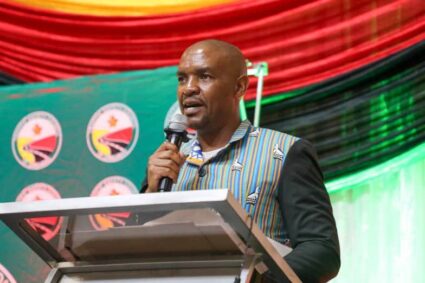PRESS STATEMENT
ActionAid Zimbabwe (AAZ) joins the rest of the world in commemorating World Humanitarian Day, themed ‘The Human Race’ with the slogan, ‘It takes a village.’ The village or the local area is where all the humanitarian actions happen.
The village or the local area is where all the humanitarian actions happen. AAZ, together with the global village, celebrates this World Humanitarian Day dedicated to humanitarian workers and people who lost their lives working for humanitarian causes as well as those who continue to support and deliver aid during humanitarian crises.
With the increasing climate change-related disasters globally, the role of Humanitarians continues to be paramount. According to the Centre for Research on the Epidemiology of Disasters (CRED) 2022 report, 387 disasters were recorded worldwide in 2022 resulting in the global loss of 30.704 lives, affecting 185 million people and creating an economic loss of around US$223.8 billion. In Zimbabwe, the number of people requiring humanitarian assistance has been steadily increasing from 4.3million in 2013 to 6.8 million in 2021(OCHA 2021)[1], a development that will likely hamper the achievement of the National Development Strategy 1 goals, accomplishment of Vision 2030, and the fulfillment of the Sustainable Development Goals (SDG).
While we commemorate the World Humanitarian Day, it is essential that we, as a Nation, introspect on our country’s disaster management policy framework underpinned by the Civil Protection Act of 1989, and assess its relevance, effectiveness and efficiency given the increasing frequency of climate-related disasters affecting the country in the past decade.
AAZ, therefore, urges GoZ, to expedite the finalisation of the Disaster Risk Management and Civil Protection Bill because a robust Disaster Risk Reduction legislation is required to:
- Facilitate a paradigm shift from disaster response or relief to preparedness, prevention, mitigation, and resilience building. It has been proven that financial returns from preparedness and resilience building could offset public expenditure on disaster response and recovery.
- Harmonise humanitarian actions across all levels by clearly stating the mandate of various humanitarian actors from the national to the local level, especially the women who are among the first responders to all disasters at the local level.
- Set standards and provide a legal basis for reducing disaster risk and losses, enhancing accountability and coordination. //ENDS/
[1] OCHA – https://humanitarianaction.info/plan/1042


